| Home > Policy > White Paper, Notice, Announcement > White Paper > Japanese Government Policies in Education, Culture, Sports, Science and Technology 2001 >Chapter2 Section1.1 | ||
When it comes to performing housework, Japanese children, to a greater extent than peers in other countries, tend to avoid troublesome chores or those requiring physical strength, such as "shopping for food and household items" or "taking out the garbage." Still, generally speaking, they are quite helpful at home.
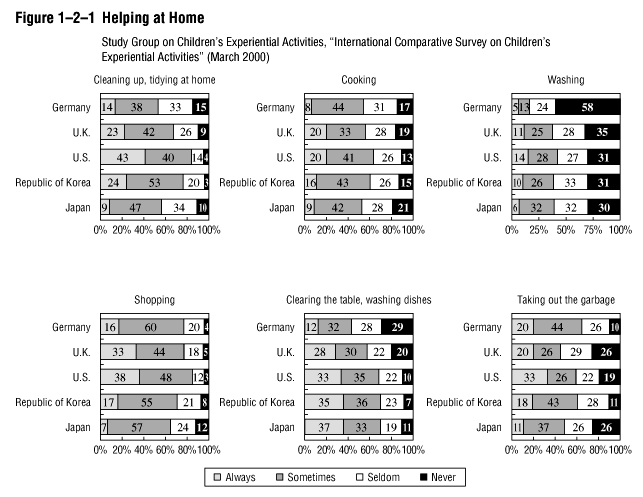
Regarding everyday-life experiences, Japanese children seem to have somewhat limited experiences of helping people close to them, such as "changing a baby's diapers and feeding milk," or "taking care of little kids and playing with them." As for social experiences, they often "participate in community festivals or events" but have few experiences of "joining volunteer activities" or "earning money for doing some work."
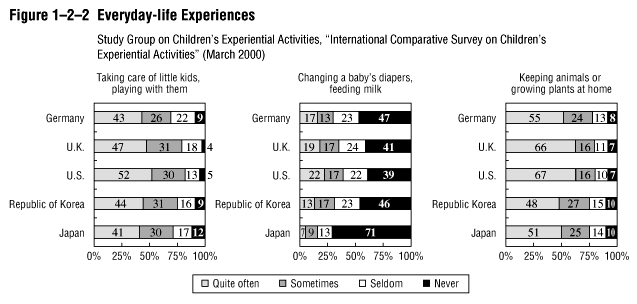
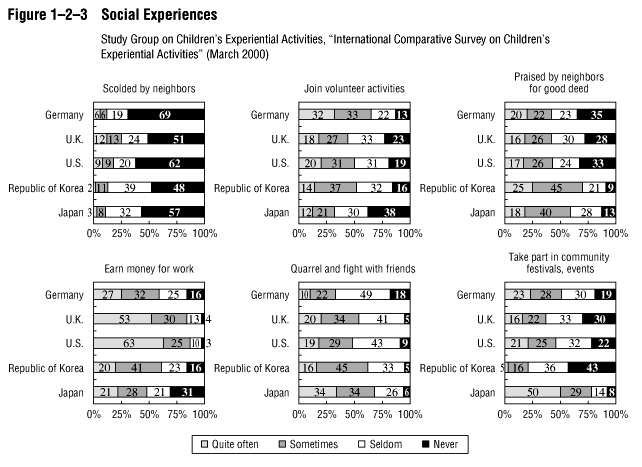
Over the past two decades, children in Japan seem to have fewer and fewer everyday-life experiences or experience activities in a natural environment. One survey found that compared with children of 20 years ago, children at present have fewer experiences of "paring an apple or pear," "touching a frog," or "hanging out the wash."
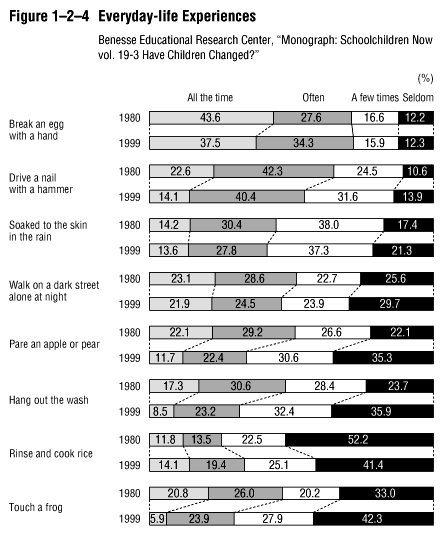
Compared with their peers in other countries, children in Japan appear more inclined to avoid becoming actively involved with friends or outsiders even when they are supposed to, and thus have few experiences of "telling someone to stop bullying," "stopping friends from fighting," "telling friends to stop doing something bad," or "listening to friends in trouble" ( see Figure 1-2-5 ).
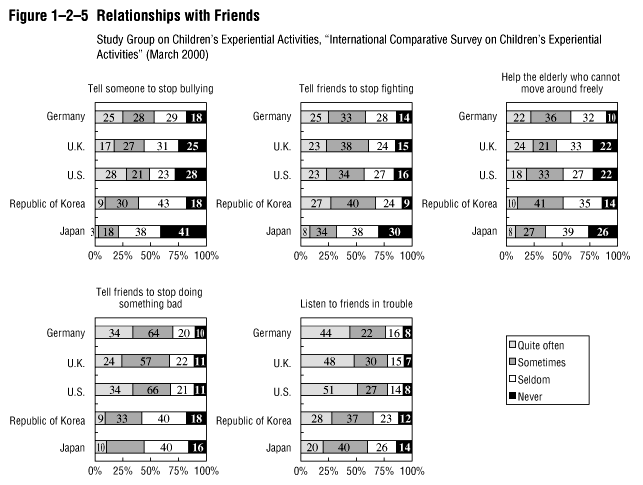
Compared with children 20 years ago, children nowadays more frequently get involved in quarrels or tussles. A survey 20 years ago found that children became involved in fewer quarrels or tussles as their grade in school advanced. But the latest survey revealed that children now tend to have more quarrels or tussles as their grade in school advanced. Experiences with quarrels or tussles are important for children to learn to be cooperative and sociable. Previously, as their grade in school advanced, children's skills in handling human relationships improved and they became more capable of solving problems without quarreling or tussling. Present-day children, however, seem to be less capable of smoothly handling relationships with friends and other people, as they do not know how to control their feelings or are very immature in forging ties with friends or other people ( see Figure 1-2-6 , 1-2-7 ).
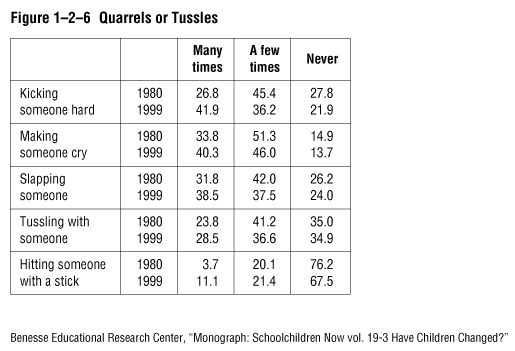
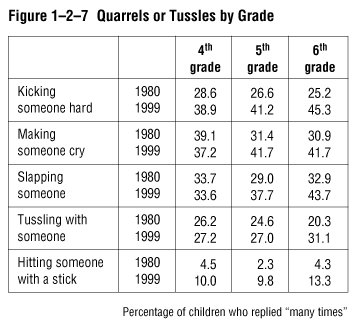
An examination of children's living environment points to a tendency of children "being alone in everyday life."
For example, 55% of elementary school children have private rooms at home, 14% have television sets in their private rooms, and 3% have own phones, cell phones or PHS phones (Management and Coordination Agency, "Survey on Sense of Values among Low-Age Juveniles" [December 2000]). Another survey found that more than half of second graders in upper secondary schools have either cell phones or PHS phones (Management and Coordination Agency, "Survey on Young People and Cell Phones" [December 2000]).
Further, there has been a growing tendency of children to have meals by themselves, without other members of the family present ( see Figure 1-2-8 ).
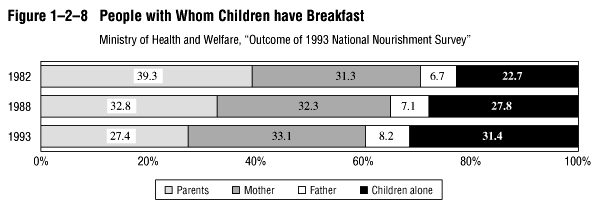
Amid these changes, there exists a tendency where some children can get through everyday life without having close contacts with other family members, even within their own homes.
| Back To Top | MEXT HOME |